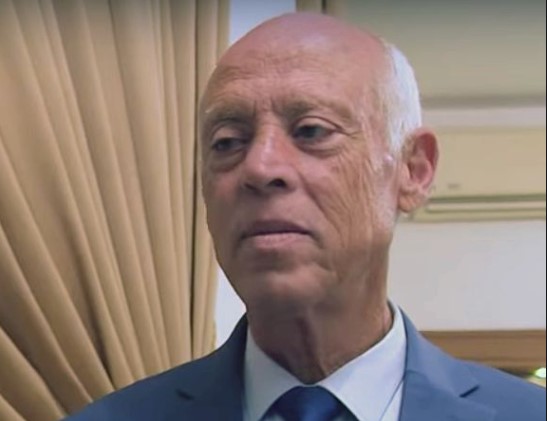FACTBOX-How Tunisia's president has tightened his grip
While opponents accuse him of a coup, Saied says he aims to save a country that was mired in political paralysis and economic malaise by remaking its governing system and overhauling the 2014 constitution. Here are the ways he has tightened his grip, starting from July 25, 2021, when he froze parliament and sacked the prime minister.

- Country:
- Tunisia
President Kais Saied has been steadily consolidating his grip over Tunisia since seizing broad powers last July, in what critics see as a march to one-man rule that has trashed the democracy established by the 2011 revolution. While opponents accuse him of a coup, Saied says he aims to save a country that was mired in political paralysis and economic malaise by remaking its governing system and overhauling the 2014 constitution.
Here are the ways he has tightened his grip, starting from July 25, 2021, when he froze parliament and sacked the prime minister. GOVERNMENT
Saied invoked Article 80 of the constitution to fire prime minister Hichem Mechichi. Parliament speaker Rached Ghannouchi, head of the Islamist Ennahda party, said he had not been consulted on the move, as required. Two months later, Saied appointed a new government under Najla Bouden but without seeking the parliamentary backing required under the constitution.
The moves undermined parliament's central role in cabinet formation, enshrined in the 2014 constitution. Bouden has said little in public, and critics say her ministers appear to have been selected largely by Saied, who has also decreed that they answer to him, not the prime minister.
PARLIAMENT After freezing parliament, Saied said there would be "no going back", ordered the military to surround parliament, and removed lawmakers' pay and immunity.
Legal experts said the move had no constitutional basis. Since then, a military court has jailed several lawmakers on charges of assaulting police.
In March a majority of lawmakers defied Saied by holding an online session rejecting all his moves. He then dismissed the parliament - another move legal experts said had no constitutional basis - and demanded investigations into members who had joined the online meeting, accusing them of a coup. He has said he wants elections to a new parliament before the end of the year.
CONSTITUTION Two months after his intervention, Saied issued a string of decrees brushing aside most of the 2014 constitution and giving himself the power to rule by decree - a move which he said was constitutionally valid but which legal scholars have contested.
Saied held an online multiple-choice consultation over what Tunisians wanted for their political system, but few took part. Critics described the survey as slanted to achieve the results he sought. He has appointed a law professor to form a committee to rewrite the constitution, but several of those invited to take part refused to do so.
Arguing that the 2014 constitution caused years of political paralysis, Saied aims to put the new one to a referendum on July 25 - the anniversary of his intervention and only a month after the new constitution will be written. THE JUDICIARY
Saied voiced annoyance with the judiciary as his repeated efforts to bring corruption charges against prominent politicians and businessmen stalled in court, and as top judges questioned the legitimacy of his constitutional changes. In March he replaced the Supreme Judicial Council - an independent body that appoints or dismisses judges - and in June he sacked 57 judges, including the former head of the council.
VOTING Since the revolution, Tunisia's handling of elections has won international praise as broadly free and fair.
However, in April Saied replaced the independent electoral commission with members chosen by himself, a move widely seen as undermining the integrity of future votes. He also decreed changes to the voting system, saying parliamentary elections would take place in two rounds instead of one and with voters picking individuals rather than lists, undermining political parties.
PUBLIC POSITIONS Saied has replaced numerous public officials at all levels of the state over the past 11 months in a shake-up that analysts say has targeted people linked to Ennahda.
Senior security officials, regional and local governors, and civil bureaucrats have all been switched for Saied's own preferred candidates.
(This story has not been edited by Devdiscourse staff and is auto-generated from a syndicated feed.)
- READ MORE ON:
- Kais Saied
- Tunisia
- Saied
- Najla Bouden
- Rached Ghannouchi
- GOVERNMENT
- Tunisians
ALSO READ
Tunisian coast guard retrieves bodies of 13 migrants, rescues hundreds
Italy offers Tunisia 105 million euros in state cash, credit facility
Organisers of Jewish pilgrimage in Tunisia cancel annual celebrations over Gaza
Organising committee of Jewish pilgrimage in Tunisia cancels annual celebrations
Tunisian court imprisons journalist for insulting public official, his lawyer says










